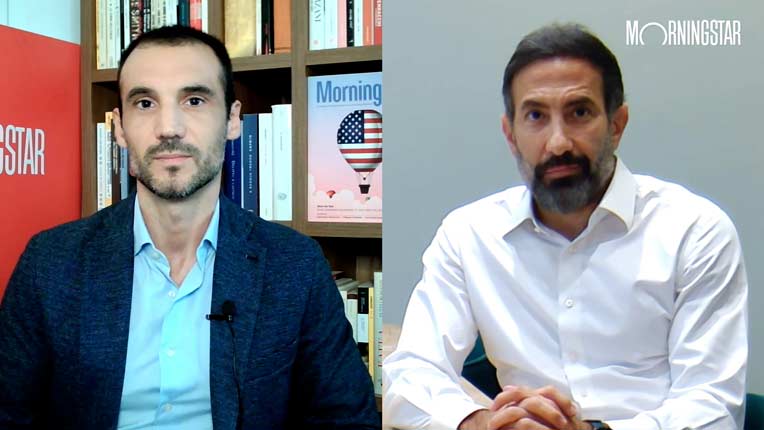
Emerging markets funds have been hit hard in the Covid-19 sell-off, but it is those focused on smaller companies across the region which have fared worst.
Decisions about which sectors and size of company to invest in have proved crucial for fund managers in recent weeks, with a wide gap in performance between the funds that have made the right calls and the wrong ones.
While all Emerging Markets equity funds were down in the first quarter of the year, the disparity between the best and worst performers was stark. While the top-performing BNY Mellon Global EM Markets tumbled 12.84% in the first three months of the year, Templeton Emerging Markets Smaller Companies plunged 28.84%.
Interestingly, both funds had a high exposure to the same countries - China and India - but what distinguishes the two is the size of company they invest in and they sectors they are exposed to.
Top Performing Emerging Markets Funds
The four-star rated BNY Mellon fund focuses on large-cap companies, which often tend to be more resilient because they do business internationally, across many countries, making them less vulnerable to issues in one market. Smaller companies, meanwhile, tend to be domestically focused, and can suffer if there's a slowdown in their home market.
The main contributors to the BNY Mellon fund's outperformance included Hindustan Unilever, Tencent and Samsung, whose shares climbed 20.4%, 8.7% and 3% respectively in the first quarter of the year. Exposure to these defensive sectors helped the fund outperform the MSCI Emerging Markets Index by 5.6 percentage points over the period.
Mumbai-headquartered Unilever (HINDUNILVR), is the emerging markets listing of UK-based Unilever, which is behind popular household brands such as Dove and Vaseline. The company saw its share price climb more than 10% in a single day when it announced plans to acquire hygiene brand VWash at the end of March.
Tech companies, meanwhile, proved to be a good shield against the market turmoil. For example, Chinese internet behemoth Tencent (0070) was able to weather the Coronavirus storm quite well, and reported in its end of year results that online gaming revenues were up 25%. The proliferation of remote working and home schooling has also been a boon to such companies since lockdowns were implemented, boosting the use of Tencent's tools such as Tencent Meeting and WeChat Work.
| Fund | Q1 Return (%) | vs MSCI EM Index |
| BNY Mellon Global Emerging Markets International | -12.84 | 5.53 |
| BlackRock Emerging Markets | -17.24 | 1.13 |
| JPM Emerging Markets | -17.50 | 0.88 |
| GS EM CORE Equity | -18.41 | -0.03 |
| T. Rowe Price EM Equity | -18.41 | -0.04 |
Second in the list of top-performers is the five-star rated BlackRock Emerging Markets fund, down 17.2% in the first quarter. The fund's largest country weightings are to Russia, Brazil, China, India, Korea and Mexico. But it is some of the stock-specific calls the fund has made which has aided performance; shares in China's Asymchem Laboratories and Wiwynn, and South Korea's NCsoft were up 39%, 22.3% and 17.1% respectively over the period.
Chinese drug manufacturer Asymchem Laboratories (002821), for example, saw its share price rocket 39% in the quarter as it worked on a cure for the coronavirus. The company develop drugs for other firms based on their designs and specifications, and specialises in conducting clinical trials.
South Korean NCsoft (036570), meanwhile, is a video game developer. It posted positive results for 2019 and, with more people staying home and playing video games, its shares surged 22.3%.
Meanwhile, shares in Wiwynn climbed 17.1%; it produces computer storage devices, network systems, and equipment room infrastructure products and sells its products across Amercia, Europe and Asia.
Worst Performing Emerging Markets Funds
Funds focused on smaller companies dominated the list of worst performers for the first three months of the year. The Neutral-rated Frankling Emerging Markets Smaller Companies fund was down 28.86% over the period, some 10.48 percentage points lower than the MSCI Emerging Markets Index.
One of its weakest holdings in the quarter was Indian investment company Bajaj (BAJAJHLDNG), which saw assets under management dwindle as panicked investors withdrew their money from the market. Brazilian firm Duratex (DTEX3) was also among the fund's detractors; the firm manufactures wood panels and may have suffered as consumers and companies cut down on non-essential spending. Its shares dropped 55.6% over the period.
Another of the fund's weaker holdings was Imax (IMAX), a Canada-based entertainment company which runs more than 1,500 movie theatres across 80 countries. Its shares plunged 54.7% as consumers in lockdown and unable to go out moved to online streaming services.
| Fund | Q1 Return (%) | vs MSCI EM Index |
| Templeton EM Smaller Companies | -28.86 | -10.48 |
| M&G Global Emerging Markets | -28.06 | -9.69 |
| Magna Emerging Markets | -26.23 | -7.85 |
| Eaton Vance International | -25.67 | -7.30 |
| Lazard Emerging Markets | -25.64 | -7.27 |




























